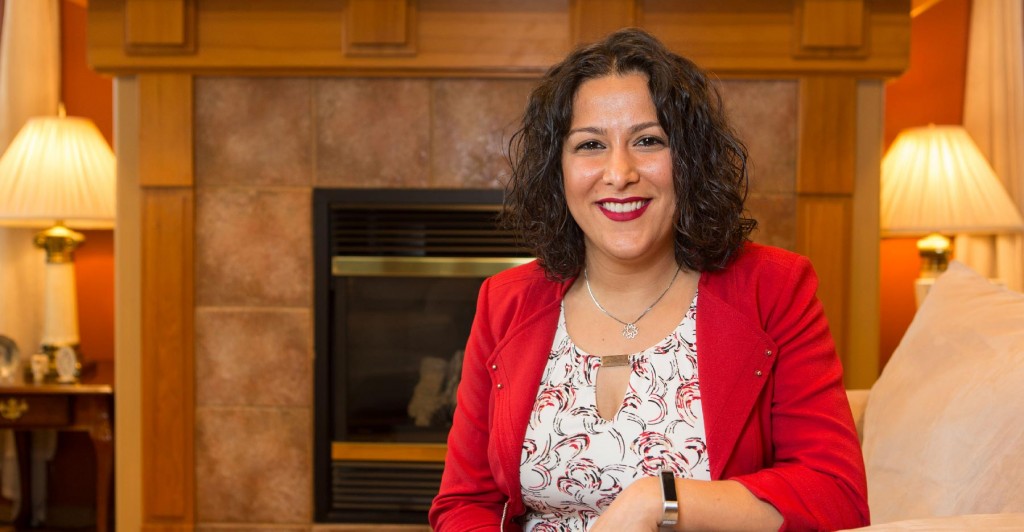Page 55 • (576 results in 0.138 seconds)
-
) EDUC 407 : Teaching and Learning of Writing This course focuses on the multimodal teaching of writers across developmental stages, emphasizing culturally sustaining practices. This includes developmental and writing processes, genre exploration, the role of identity and community in writing, writing strategies and skills, and formative assessment and feedback. (2) EDUC 423 : Language and Literacy Development for Multilingual Learners This course examines stages of second language acquisition
-
participants’ identities and data cannot be linked in any way. In-person surveys can be anonymous IF there is no identifying information and all participants are asked to use the same writing instruments. With confidentiality, the researcher – but no one else – knows the identity of the participants and can link participants with specific data. Confidentiality, but not anonymity, is possible during face-to-face interviews or interactions with participants. Read further guidance on anonymity confidentiality
-

treatment and relational functioning. “We can only understand ourselves through our interactions with others,” he said. The key is treating the whole person, where they are at, taking into consideration race, gender identity, religion, socioeconomic status, and all other contexts that shape a person. “Where we find ourselves in relation to our world really matters,” Ward said. “We want to really recognize that a person’s place in the world influences them.” To remain authentic in that pursuit, Ward says
-
. After this year, her future goals include attending law school and becoming an immigration attorney.Robin Jacobson *Robin Dale Jacobson* is Associate Professor of Politics and Government at the University of Puget Sound. She has been researching, writing and speaking about the politics of race and immigration for over a decade. She is asked to speak regularly to academic audiences and civic and political organizations on questions about immigration politics and identity and politics. She has
-
. After this year, her future goals include attending law school and becoming an immigration attorney.Robin Jacobson *Robin Dale Jacobson* is Associate Professor of Politics and Government at the University of Puget Sound. She has been researching, writing and speaking about the politics of race and immigration for over a decade. She is asked to speak regularly to academic audiences and civic and political organizations on questions about immigration politics and identity and politics. She has
-
. After this year, her future goals include attending law school and becoming an immigration attorney.Robin Jacobson *Robin Dale Jacobson* is Associate Professor of Politics and Government at the University of Puget Sound. She has been researching, writing and speaking about the politics of race and immigration for over a decade. She is asked to speak regularly to academic audiences and civic and political organizations on questions about immigration politics and identity and politics. She has
-
. After this year, her future goals include attending law school and becoming an immigration attorney.Robin Jacobson *Robin Dale Jacobson* is Associate Professor of Politics and Government at the University of Puget Sound. She has been researching, writing and speaking about the politics of race and immigration for over a decade. She is asked to speak regularly to academic audiences and civic and political organizations on questions about immigration politics and identity and politics. She has
-
. After this year, her future goals include attending law school and becoming an immigration attorney.Robin Jacobson *Robin Dale Jacobson* is Associate Professor of Politics and Government at the University of Puget Sound. She has been researching, writing and speaking about the politics of race and immigration for over a decade. She is asked to speak regularly to academic audiences and civic and political organizations on questions about immigration politics and identity and politics. She has
-
. After this year, her future goals include attending law school and becoming an immigration attorney.Robin Jacobson *Robin Dale Jacobson* is Associate Professor of Politics and Government at the University of Puget Sound. She has been researching, writing and speaking about the politics of race and immigration for over a decade. She is asked to speak regularly to academic audiences and civic and political organizations on questions about immigration politics and identity and politics. She has
-
. After this year, her future goals include attending law school and becoming an immigration attorney.Robin Jacobson *Robin Dale Jacobson* is Associate Professor of Politics and Government at the University of Puget Sound. She has been researching, writing and speaking about the politics of race and immigration for over a decade. She is asked to speak regularly to academic audiences and civic and political organizations on questions about immigration politics and identity and politics. She has
Do you have any feedback for us? If so, feel free to use our Feedback Form.


